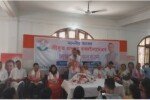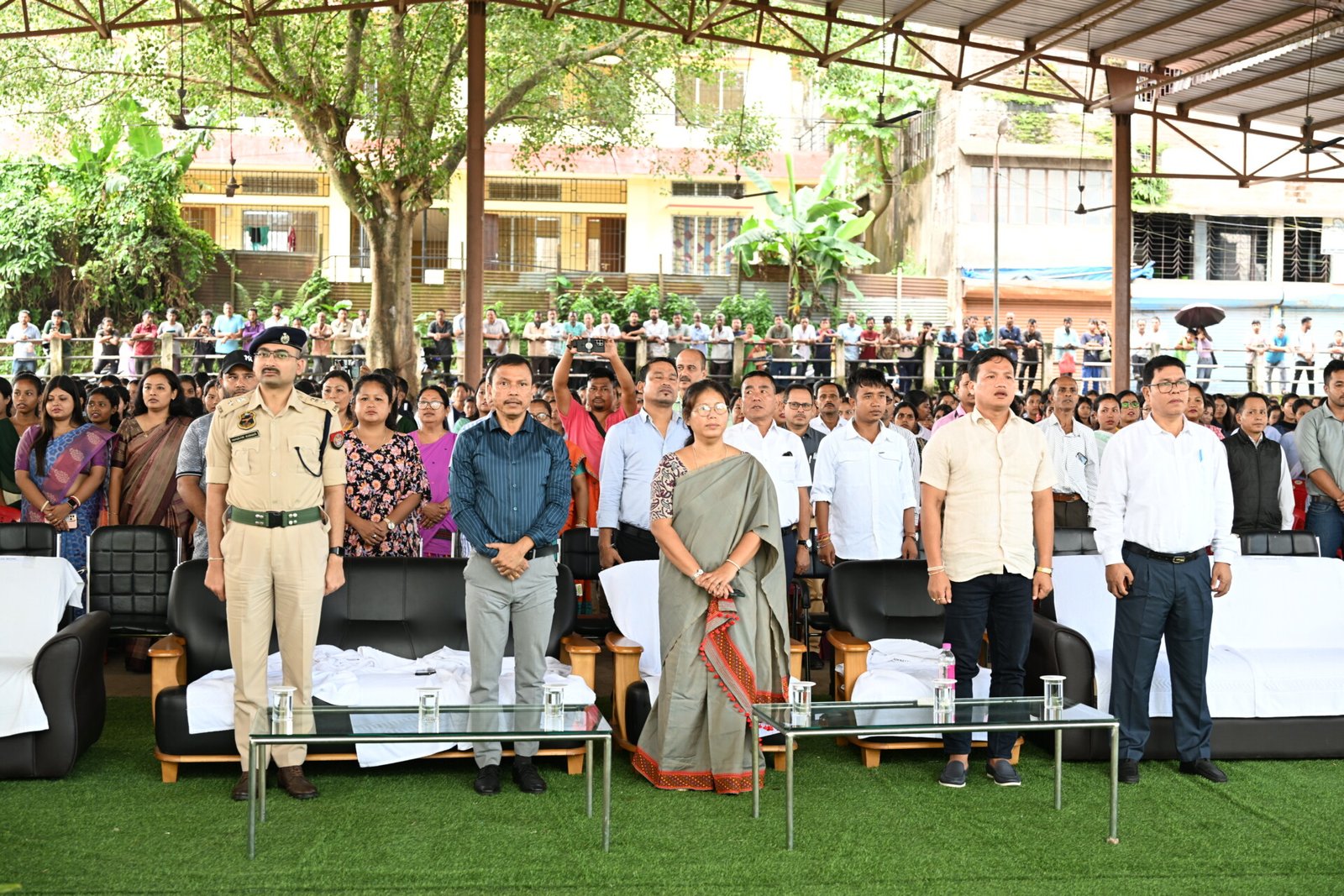Guwahati, July 17 (PTI): Assam chief minister Himanta Biswa Sarma and his ardent critics such as Congress MP Pradyut Bordoloi, state TMC chief Ripun Bora and Raijor Dal MLA Akhil Gogoi have one thing in common, all of them have learnt the basics of politics in Guwahati-based Cotton College, now upgraded to Cotton University.
The institute was established in 1901 by Sir Henry Stedman Cotton, the chief commissioner of the erstwhile British province of Assam, at the central Panbazar locality on the banks of the Brahmaputra.
The Assam government-controlled university, which has been offering traditional subjects for all these years, is now gearing up to impart education in a few modern and unconventional subjects.
“During this 122 years of journey, Cotton College has produced many prominent personalities of Assam and North East from all walks of life such as academics, literature, science, culture, politics and administration.”
“Without Cotton College, I don’t think Assam would have reached where it is now,” Cotton University (CU) vice chancellor Prof Ramesh Chandra Deka told PTI in an interview.
In every aspect of Assamese society, Cotton has an immense contribution. Luminaries like Bharat Ratna Dr Bhupen Hazarika had studied sitting on the benches of this historic and first college of North East.
“Former CJI Ranjan Gogoi was a Cottonian. Present CM Himanta Biswa Sarma was the general secretary of Cotton College Students’ Union (CCUS). Many other politicians like Pradyut Bordoloi, Ripun Bora and Akhil Gogoi learnt the ‘ABC’ of politics here and all of them were general secretaries of CCUS,” Deka said.
Not only Sarma, but seven out of 15 chief ministers of Assam had studied in Cotton College, including the first CM, Gopinath Bordoloi.
Chief ministers from some other North Eastern states also studied in this institute.
Sportspersons bringing laurels to Assam like World Boxing Champion Lovlina Borgohain, Asian Games Gold medalist Hima Das and IPL player Riyan Parag are part of the present batches of students of Cotton University.
Initially, Cotton College was affiliated to Calcutta University before it became a constituent college of Gauhati University in 1948.
In 2011, the Cotton College State University was established with the college as a constituent.
The Cotton University came into being in 2017 by unification of Cotton College State University and Cotton College.
The varsity is now expanding with the introduction of various new departments, while carrying out research activities on crucial subjects.
“At present, we have 31 departments. We are now working on implementing the National Education Policy 2020 and are trying to develop infrastructure for research as we have over 600 PhD scholars,” the VC said.
The institute, which has around 6,000 students and 250 faculties, has now sent proposals to the government for necessary approvals and funds to establish new centres like centre for multi-disciplinary research, centre for climate change and North Eastern study centre.
Explaining the latest studies under a new wing of the CU, Centre for Cloud & Climate Change Research director Dr Rahul Mahanta said, “Flood’s fury in this region is increasing and creating havoc on the biodiversity. It’s a highly challenging and transborder problem. How worst the situation can be in future and what policy intervention is needed — these aspects are totally lacking in Assam.”
The centre has initiated research to help in policy intervention by studying macro-physical activities of clouds, he added.
“Another aim of this centre is to develop human resources to study the monsoon of Assam and the North East. Monsoon is a local phenomenon and scientists from other parts of the country or globe will not study it for Assam,” Mahanta said.
Centre for Women Studies head Dr Rakhee Kalita Moral said, “Students of the undergraduate programme at CU have widely accepted gender studies as one of their courses. Many of them have gone out from here to involve themselves in many different programmes in many different centres of higher education nationally and outside.”
Although the CU centre is taking small steps, it is looking towards a road ahead with a vision to contribute in making society more equal by creating safe spaces for all, she added.
The Environmental Biology & Wildlife Sciences department is currently carrying out a project to study the impact of urbanisation on different levels of biological organisations such as individuals, species, population, communities and ecosystem levels.
“Apart from other areas, we are looking at human-wildlife conflict, which is a burning issue of Assam. We are studying human-elephant conflicts at some of the adopted villages of CU and monkey menace in urban areas,” Environmental Biology & Wildlife Sciences assistant professor Dr Narayan Sharma said.
CU VC Prof Deka also said many of the properties of the varsity are of heritage importance and these structures are being preserved by the institution.
“There is a saying that ‘What Cotton thinks today, Assam will think tomorrow’. This statement signifies the importance of the institute in Assamese society. In every sphere of Assamese society – be it political, social, administrative, cultural, literary and sports – the contribution of Cotton is visible,” he added.











